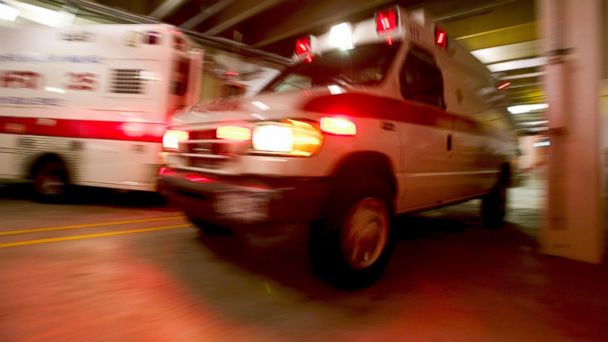Millions Lost Yearly to Ambulance Companies Acting Like a 'Taxi Service'
Every year, $350 million in ambulance services is lost to or ripped off by companies, according to the Centers for Medicaid and Medicare Services.
Ron Kerr, assistant special agent in charge in the Office of Inspector General, U.S. Department of Health and Human Services, said the businesses ran the ambulances like a "glorified taxi service."
Government makes arrests for $430M in health-care fraud.
Feds recovered $4 billion in government medical fraud in 2010.
"Ambulances are transporting patients that are healthy enough to travel by other means. It is a very lucrative business because each patient that is transported three times a week - [for example,] a typical dialysis patient - is worth, bills Medicare $60,000 per patient," said Ron Kerr, assistant special agent in charge in the Office of Inspector General, US Department of Health and Human Services.

(Getty Images)
ABC News went on patrol with federal agents in Huntington Valley, a suburb outside of Philadelphia, Pennsylvania.
Huntington Valley is an area where there are more ambulance companies than taxi companies. The Philadelphia area is one of five cities that include New York, Houston, Los Angeles and Atlanta that are considered high risk for ambulance fraud.
One undercover video showed patients - Medicare beneficiaries - riding in the front seat of an ambulance as they were taken to a doctor's appointment.
What should have been a $20 cab ride now skyrocketing to more than $400 roundtrip, all paid for by Medicare.
Kerr said that ambulance companies meet a state's requirements to operate and then drivers search for customers in lobbies or waiting rooms. He said the drivers sometimes paid patients with cash or gifts to ride in the ambulance so the company could then bill Medicare.
"It is simple math: If they are able to recruit 20 patients, they are grossing over 1 million dollars a year," he said. "They are making a tremendous amount of money."
In another undercover video, a patient climbed into the front seat of an ambulance as a second patient rode in the back.
Though an ambulance is approved for medical needs - for example, a patient who can't walk - Kerr's office said the case of the ambulance transporting two patients at one time was double billing. In a third video, an ambulance even stopped so a patient could pick up takeout food.
"Some of the fraudsters that enter into the ambulance fraud may have been drug dealers at one point but it is just more lucrative to get involved in health-care fraud," Kerr said. "Medicare is over a 600-billion-dollar program. It is where the money is."
Shantanu Agrawal, a deputy administrator for the Centers for Medicaid and Medicare Services and director of the Center for Program Integrity, said the agency took some responsibility for the fraud but was making progress on stopping it.
"We know it's an area of abuse that in some ways outstrips other areas," Agrawal said. "We are working as quickly as we can to get it behind us but that is going to take time."
He said he did not think it was a war his agency was losing, though.
"I think with all of the new tools we have, we are doing a lot to safeguard the program on the front end to make sure bad actors aren't getting in in the first place," Agrawal said. "And if they're already in the program because of, you know, historic rules that existed before, we're working very hard to get them out."